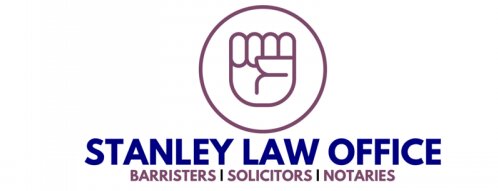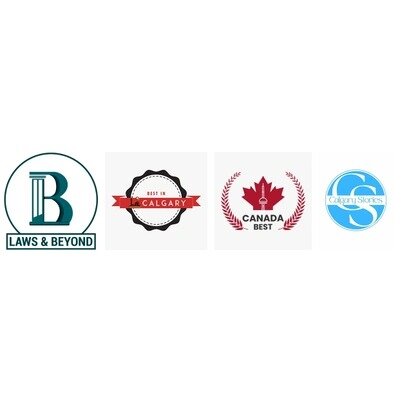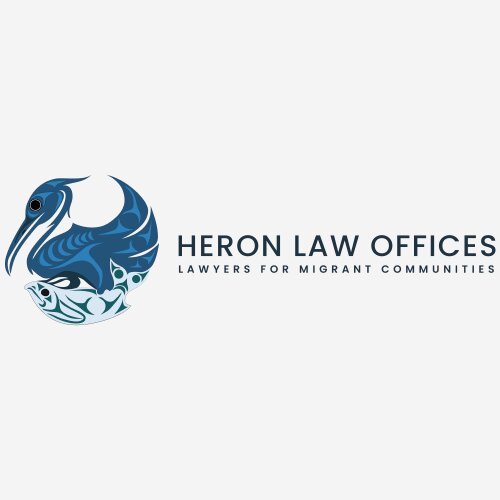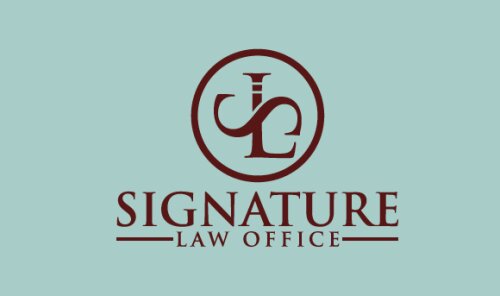Best Citizenship Lawyers in Canada
Share your needs with us, get contacted by law firms.
Free. Takes 2 min.
Or refine your search by selecting a city:
List of the best lawyers in Canada
About Citizenship Law in Canada
Citizenship law in Canada is governed by the Canadian Citizenship Act, which outlines the criteria and process for acquiring, losing, and revoking Canadian citizenship. Being a Canadian citizen offers numerous benefits, including the right to vote, eligibility for certain government jobs, and an unrestricted right to live and travel in Canada. The process generally involves meeting specific residency requirements, demonstrating knowledge of Canada, and proving language proficiency. Dual citizenship is permitted, allowing Canadians to hold citizenship in more than one country.
Why You May Need a Lawyer
There are several circumstances in which legal assistance may be beneficial. Common scenarios include:
- Understanding eligibility requirements for citizenship.
- Navigating complex application processes, including issues with residency or language proficiency.
- Addressing potential issues related to criminal records or security concerns.
- Dealing with the potential revocation of citizenship or disputes over dual citizenship.
- Assisting with failed citizenship applications and appeals.
A lawyer specializing in citizenship law can provide tailored advice, help prepare necessary documentation, and represent you in legal proceedings if necessary.
Local Laws Overview
Canada’s citizenship law is primarily encapsulated in the Canadian Citizenship Act. Key aspects include:
- Residency Requirements: Applicants must have been physically present in Canada for at least 1,095 days in the five years before applying.
- Language Requirements: Applicants aged 18 to 54 must demonstrate adequate knowledge of English or French.
- Citizenship Test: Includes knowledge of Canadian history, values, institutions, and symbols.
- Prohibitions: Certain criminal convictions or immigration issues can impede the ability to become a citizen.
- Dual Citizenship: Legally recognized, allowing Canadians to hold citizenship in other countries simultaneously.
These laws are subject to change, and legal guidance can be crucial in navigating them effectively.
Frequently Asked Questions
What are the basic eligibility requirements for Canadian citizenship?
Applicants must be permanent residents, meet residency requirements, pass a language and knowledge test, and have no prohibitive criminal history.
Can I lose my Canadian citizenship?
Yes, citizenship can be revoked for reasons such as fraud, terrorism, or serving in the armed forces of a country at war with Canada.
Is dual citizenship allowed in Canada?
Yes, Canada permits dual or multiple citizenships.
Do I need to renounce my previous citizenship when I become a Canadian citizen?
No, Canada does not require you to renounce your previous citizenship.
How long does it take to process a citizenship application?
Generally, the processing time is around 12 months from the submission of a complete application.
Are there exceptions to the residency requirement?
Military personnel and their families may have special provisions related to residency.
Can I apply for citizenship if I have a criminal record?
It depends on the nature of the crime and any sentencing you have served. Consulting a lawyer is advised.
What happens if I fail the citizenship test?
You can retake the test. If you fail a second time, you may need to participate in a hearing.
Am I guaranteed citizenship if I meet all the criteria?
Meeting criteria does not guarantee approval; applications are subject to review by immigration officers.
Can minors apply for citizenship separately from their parents?
Yes, minors can apply separately or as part of a family application if they are permanent residents.
Additional Resources
For further assistance, consider the following resources:
- Government of Canada’s Citizenship and Immigration website for application guides and updates.
- Immigration, Refugees and Citizenship Canada (IRCC) for queries and support.
- Local community organizations offering immigration services and support.
Next Steps
If you need legal assistance with citizenship matters, consider the following steps:
- Consult with a lawyer specializing in immigration and citizenship law to evaluate your specific situation.
- Gather all necessary documentation, including proof of residency and personal identification.
- Prepare for any required tests, particularly language and knowledge tests.
- Stay updated on any changes to the law that may affect your application.
- Contact relevant governmental bodies for official information and support.
Proactively engaging with appropriate resources and legal professionals can help ensure a smoother process.
Lawzana helps you find the best lawyers and law firms in Canada through a curated and pre-screened list of qualified legal professionals. Our platform offers rankings and detailed profiles of attorneys and law firms, allowing you to compare based on practice areas, including Citizenship, experience, and client feedback.
Each profile includes a description of the firm's areas of practice, client reviews, team members and partners, year of establishment, spoken languages, office locations, contact information, social media presence, and any published articles or resources. Most firms on our platform speak English and are experienced in both local and international legal matters.
Get a quote from top-rated law firms in Canada — quickly, securely, and without unnecessary hassle.
Disclaimer:
The information provided on this page is for general informational purposes only and does not constitute legal advice. While we strive to ensure the accuracy and relevance of the content, legal information may change over time, and interpretations of the law can vary. You should always consult with a qualified legal professional for advice specific to your situation.
We disclaim all liability for actions taken or not taken based on the content of this page. If you believe any information is incorrect or outdated, please contact us, and we will review and update it where appropriate.
Browse citizenship law firms by city in Canada
Refine your search by selecting a city.















